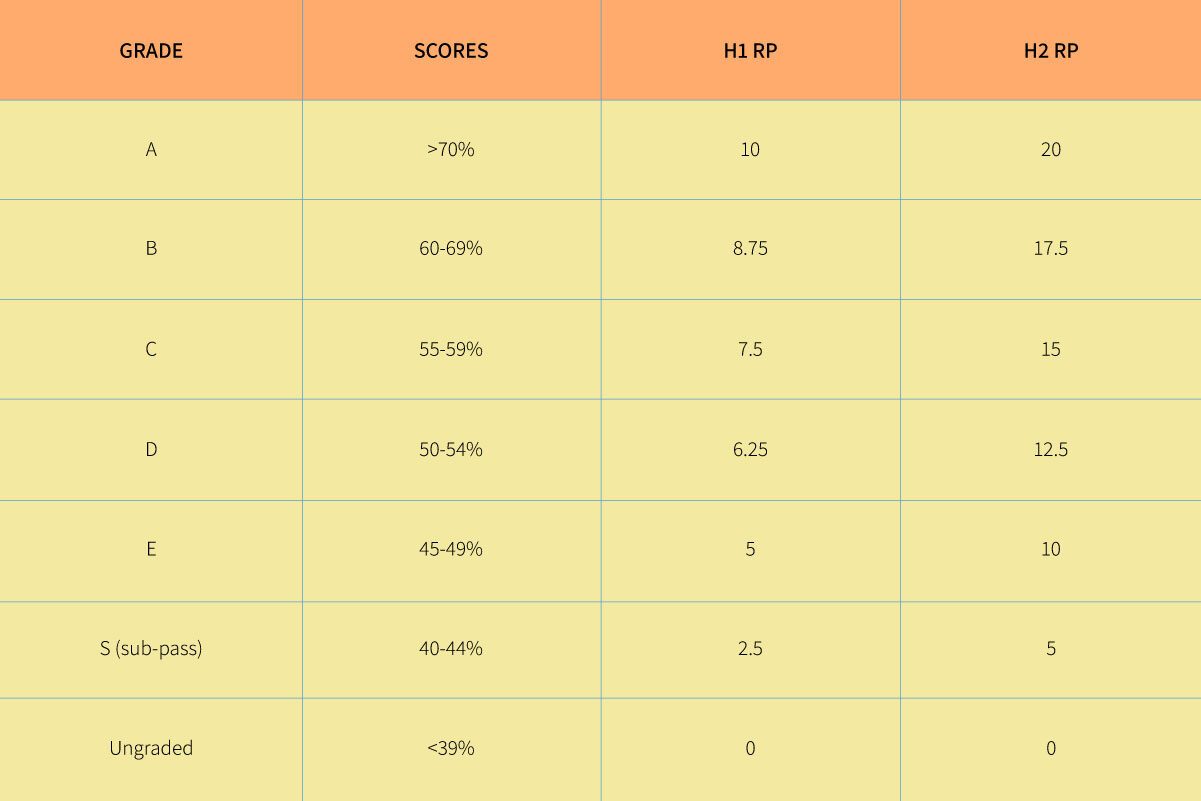
After spending more than a decade in Singapore’s local education system, the GCE A-Level Examination is the final lap for students before graduating to tertiary institutes or beyond.
Given its rigour and short runway, students preparing for the A-Levels tend to buckle up and double down on their revision efforts. But without stopping to recalibrate, laser-sharp focus can turn into tunnel vision. This article highlights oft-overlooked pointers to help students channel their time and energy effectively.

Treat Mock Examinations as the Real Thing
Unlike in secondary school where every academic year has four key examination periods, the next test or examination is never too far away when students are in junior college. As period assessments become the norm, it can be tempting to accord less importance to them. But treating them flippantly can be detrimental, especially since preliminary examination results might be used on the off-chance that students are unable to sit for the A-Levels.
Treating mock examinations as the real thing helps to acclimatise students to the intensity of A-Level examinations. With an extensive syllabus crammed into two years, students need not obsess about perfecting every mock paper. Rather, they are a tool for highlighting blind spots that can be rectified in a timely manner.
Being diligent about following up on these mock examinations is key. If there is anything a student would have learned in their second year, it is the danger of letting uncertainty slide. Talking through their learning gaps with teachers and peers and understanding the nature of their mistakes go a long way to achieving excellence at the A-Levels.

Know the Differences Between Each Examination Format
While keeping tabs on their progress in multiple subjects, students should not neglect the difference across their examination formats. The fundamental things to note for every subject are the number of papers, the exam duration, and the allocation of marks. Knowing these in advance helps students to optimise the time spent on different sections according to weightage and gives them a chance to customise their approach for different subjects.
The Learning Lab is now at locations. Find a location that suits your needs.
If you have any questions about our range of programmes or class schedules, you may contact us at 6733 8711 or drop us an email at enquiry@thelearninglab.com.sg.
Students would be remiss to neglect the limitations of using dated papers from the past decade for practice. For example, 2017 saw a refresh in the A-Level Chemistry examination which reduced Multiple Choice Questions in Paper 1 and accorded more weightage to Paper 2. Last year, a handful of Common Last Topics had also been removed due to the pandemic. To avoid spending their time on topics that are not examinable, students can keep themselves updated on SEAB’s page. Plus, they can also find specimen papers for a clearer picture of the examination formats.

Set Realistic Goals by Knowing the Scoring and Rank Points System
Forget L1R5 - the scoring system for A-Levels is a whole other ball game.
For students reading this before starting JC, here’s a crash course:
The H in H1, H2, and H3 stands for higher, and the number increases with depth. Compulsory H1 subjects are General Paper and Project Work, though the former can be replaced with Knowledge and Inquiry. On top of these H1 subjects, students can either take up 4 H2 subjects or the 3H2 and 1 H1 combination, depending on their cut-off points and JC of choice.
Since H2 subjects are more complex than their H1 counterparts, they are worth up to 20 and 10 points respectively - depending on the alphabet that follows - in the A-Levels.
According to this table, scoring 65% in the General Paper exam will put a student at H1B and earn them 8.75 rank points. The same score in their Chemistry paper, however, would earn them twice as many rank points at H2B. At best, a student can score a maximum of 90 rank points.
The total GCE A-Level Examinations score is derived by adding up the rank points across all the subjects.
Now, why would students need to know this ahead of time? Three words: University Admission Score.
Across university courses in engineering, science, business, medicine, law, humanities, arts, and social science, the prerequisites are not the same. Whereas an aspiring lawyer might prioritise H1 General Paper or H2 Knowledge and Inquiry, a student who wishes to pursue psychology might be more focused on H1 Mathematics.
With a clear picture of the scoring system, realistic targets can be set based on performance in the academic term. By optimising their revision efforts, students can boost their chances of qualifying for their preferred universities and programs.

Gearing Up for Your A-Level Examinations
Two years is a short runway to prepare for the GCE A-Levels. Strategic preparation has never been more important, which is why The Learning Lab’s Junior College programmes focus on structure, content, and skill application. Read more about them here.



